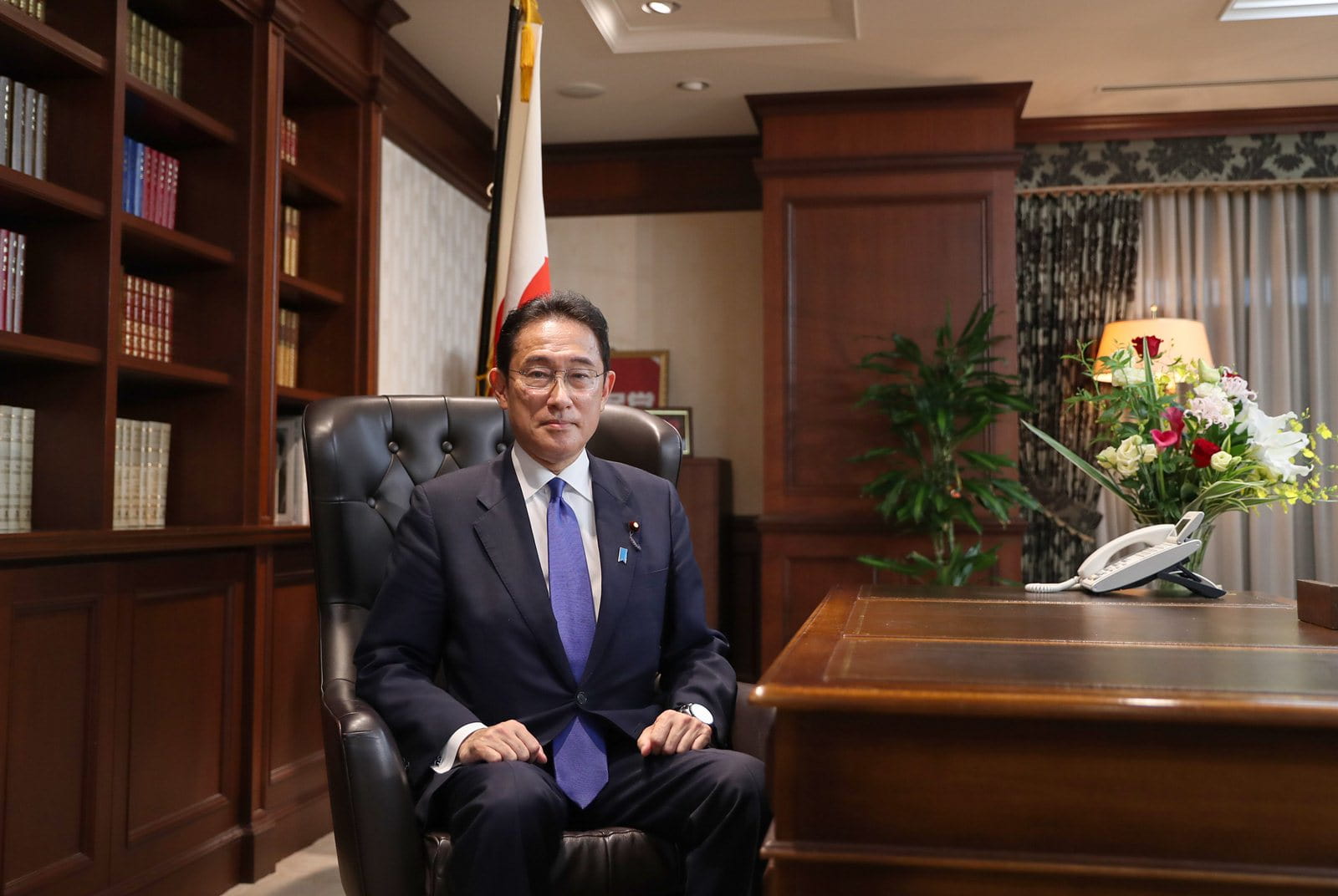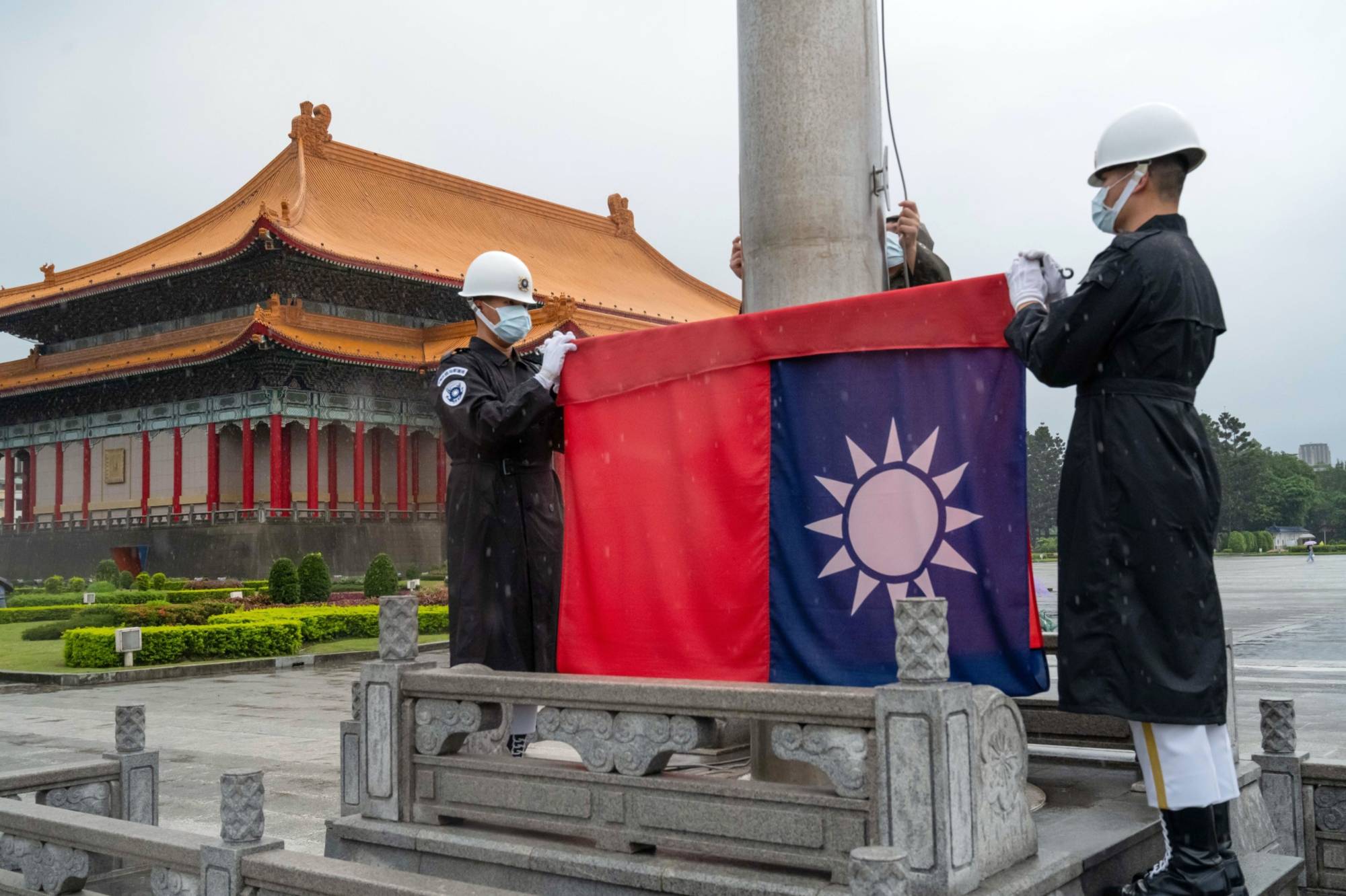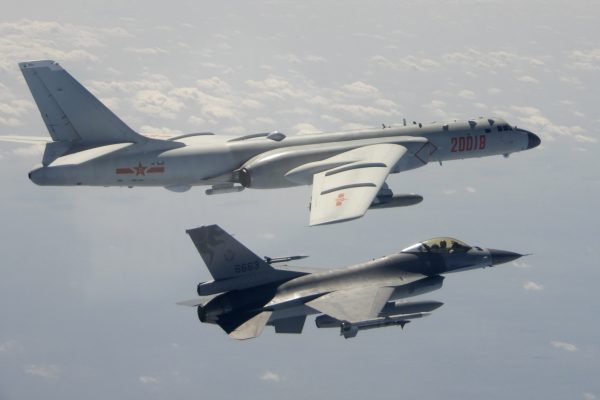How could Japan’s Taiwan policy under Kishida go?

Source:Getty Images
Kishida would likely continue Abe’s and Suga’s Taiwan policy: pushing ties with Taiwan while keeping a close eye on China’s acceleration of political and military pressure in the Taiwan Strait. A variety of positive signs make this trend potential.
Views
How could Japan’s Taiwan policy under Kishida go?
By Huynh Tam Sang, Phan Van Timweb only
In early October, Japan’s former foreign minister Fumio Kishida was sworn in as the nation’s 100th prime minister, succeeding Yoshihide Suga—who had announced resignation in early September after a year in power.
The question posed here is: how likely would Japan’s Taiwan policy under Kishida be?
To answer this question, we need to brief how Japan-Taiwan relations went under the previous administration. Under Suga’s short tenure, Japan-Taiwan relations witnessed significant strides as Japan switched from embracing a neutral stance to voicing concern over security in the Taiwan Strait. The importance of buttressing peace and stability of Japan’s surroundings appeared in the US-Japan “2-plus-2” meeting in March, the US-Japan Joint Leaders’ Statement in April, and Japan’s 2021 Defense White Paper.
In August, Japan’s LDP and Taiwan’s Democratic Progressive Party (DPP) held the first security dialogue, in which both sides vowed to strengthen coordination amid shared concerns about China’s growing clout in the Taiwan Strait. Japan also made generous donations of coronavirus vaccines to Taiwan, with a total of 4.2 million doses, in the context of Taipei’s vaccine shortage. These legacies serve as the pushing force for bilateral relations under the Kishida administration.
 (Source: BLOOMBERG)
(Source: BLOOMBERG)
The trajectory of Japan-Taiwan relations may follow with Kishida embracing a determined approach towards China while forging ties with Taiwan. During his campaign for the LDP leadership, Kishida expressed “deep alarm” over China’s growing influence in the region, warned that Taiwan would be the “next big problem”, and voiced concerns over Beijing’s violation of human rights in Xinjiang, Hong Kong and its growing aggression in the East China Sea. In his first policy speech as prime minister, Kishida urged Beijing “to act responsibly, while at the same time continuing dialogues with China and cooperating on matters of common interest”.
Tokyo’s economic relations with Beijing may have nuanced implications. In January, China leapfrogged the United States to become Tokyo’s leading export partner, with more than 20 percent of Japanese exports. Tokyo’s prudent approach towards maintaining a delicate balancing vis-à-vis Beijing seems pragmatic. Yet, it has become demanding for the new administration to cooperate with China, given rising tensions in Sino-Japan relations over the Senkaku/ Diaoyu Islands and the Japanese public’s growing mistrust and skepticism about China’s ambition. In the foreseeable future, Tokyo might continue to engage with China on the economic front while remaining wary of China’s encroachment in the Taiwan Strait. At the 16th East Asia Summit held on October 27, Kishida stressed the importance of peace and stability in the Taiwan Strait, following his previous administrations’ rhetoric.
The new Japanese administration may foster Japan’s ties with Taiwan via cooperating with Washington and the Quadrilateral Security Dialogue (Quad)—including Australia, Japan, India, and the United States. In the words of political science professor Andrew Oros, Kishida would likely keep on tightening the Japan-US alliance, promoting the Free and Open Indo-Pacific (FOIP) strategy, and bolstering ties with the Quad.
After taking office, Kishida underlined that he would “stand at the fore and raise to an even greater height the Japan-US alliance”, indicating that the Japan-US alliance would continue to be the backbone of Japan’s foreign policy. Moreover, Washington’s increasing support for Taiwan could buttress Japan’s determination to support democratic Taiwan.
Kishida also committed to working closely with the Quad to promote security in the region at a time when China has intensified its coercion on Taiwan. In August, senior officials from the four-member alignment discussed the importance of peace and stability in the Taiwan Strait, underpinning Japan’s continuity of cooperating with like-minded countries to counterbalance China.
 (Source: Republic of China (ROC) Ministry of National Defense)
(Source: Republic of China (ROC) Ministry of National Defense)
Under Kishida, Japan would likely continue to support Taiwan’s bid to join the Comprehensive and Progressive Agreement for Trans-Pacific Partnership (CPTPP), of which Japan currently chairs the commission. Compared with other members of the 11-country bloc, Japan seems to give more support for Taiwan’s CPTPP bid, underscoring that both sides share common values, like democracy, the rule of law and a free-market economy.
In contrast, Tokyo has remained skeptical about Beijing’s commitment to transparency and its ability to meet high-quality standards of the CPTPP. For instance, Kishida said in early October that China’s strict control of state-owned enterprises and infringement of intellectual property rights would hamper Beijing from joining the trade pact.
However, Taiwan’s participation in the Tokyo-led CPTPP may experience slow progress, given the archipelago’s decade-long import ban on Japanese foods originated from areas affected by the 2011 Fukushima nuclear disaster. In 2018, the Tsai Ing-wen (蔡英文) administration considered lifting the ban by holding a referendum. Yet this issue reached an impasse as more than 77 per cent of the Taiwanese voted to retain the ban.
Though ending the ban on food imports from Fukushima disaster areas may be a key factor for Taiwan’s inclusion in the CPTPP, a senior Taiwanese government official said that it would be “legitimate for [Taiwan] to respond appropriately” in case of a request made by the Japanese side during the negotiations. The Japanese and Taiwanese governments might embrace dialogues to break the stalemate, given their growing strategic interests.
The good news is that Tokyo said it saw no technical problem with Taiwan joining the free trade deal while the nation has engaged in discussions with Australia and Canada to get Taiwan’s entry into the bloc. Additionally, the American announcement to lift the ban on Japanese food in September may present Taiwan with helpful suggestions. Taiwan’s chief negotiator John Deng (鄧振中) opined that Taipei could learn from Washington’s decision on this issue and said Taiwan would bring the ban “to the negotiation table once both sides begin official talks in joining the CPTPP”.
Additional indications further contribute to bolstering the optimistic view of Japan’s Taiwan policy. In his visit to Taiwan in September 1994 as the head of the LDP’s youth division, Kishida met former Taiwanese President Lee Teng-hui (李登輝). In 2016, as foreign minister under Abe’s administration, Kishida offered congratulations to Tsai on her presidential victory and praised Taiwan as “an important partner and a precious friend of Japan”. Hence, Kishida’s positive perception of Taiwan should not be overlooked.
Crucially, Kishida’s retention of the two heads of the previous administration’s defense and foreign affairs agencies suggests that he would carry on Japan’s Taiwan policy charted by his predecessors. Japanese Defense Minister Nobuo Kishi is famous for his pro-Taiwan stance and has repeatedly emphasized the role of Taiwan in maintaining Japan’s security. Foreign Minister Motegi Toshimitsu, through “vaccine diplomacy”, has sought to deepen ties with Taipei and stated that Japan’s vaccine donation to Taiwan was based on Tokyo’s “important partnership and friendship with Taiwan”. Motegi even hailed Taiwan as Japan’s “extremely important partner” and affirmed that Japan would closely monitor the Taiwan Strait and get prepared to deal with any possible uncertainties in the Strait.
These remarks suggest that Japanese prime minister Kishida would probably continue to enhance ties with Taiwan. Essentially, one may find it reasonable and confident to anticipate the bright future of Japan-Taiwan relations.
(This piece reflects the author's opinion, and does not represent the opinion of CommonWealth Magazine.)
About the author:

Huynh Tam Sang is an international relations lecturer at Ho Chi Minh City University of Social Sciences and Humanities and research fellow at Taiwan NextGen Foundation.

Phan Van Tim is a research assistant at Ho Chi Minh City University of Social Sciences and Humanities.
Have you read?
♦ Driven by a common goal: How does Atlas Copco cut emissions?
♦ The path to resilience: Circular supply chain outlook for Taiwan and Europe
♦ Taiwan can’t build renewables if we can’t balance them
Uploaded by Jane Chen






